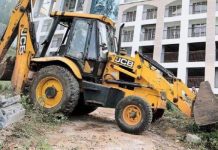
The Government has released a list of the services that will remain functional across the country from April 20. Union minister Ravi Shankar Prasad has shared the list of what will remain open all over India effective April 20.
Here is a list of what will remain open all over India with effect from 20th April 2020. This will NOT be applicable in the Containment zones/ Hotspots.
Here is a list of what will remain open all over India with effect from 20th April 2020.
— Ravi Shankar Prasad (@rsprasad) April 18, 2020
This will NOT be applicable in the containment zones.
Let us all fight together against #Covid19#IndiaFightsCorona#StayHomeStaySafe pic.twitter.com/d1EG0CMEOa
What is permitted?
1- Financial services
- RBI and other RBI regulated financial markets and entities
- Banks, ATM and IT vendors for banking operations
- SEBI and capital and debt market services
- IRDAI and insurance companies
2- Commercial services
- Print and electronic media
- IT services with up to 50 per cent capacity
- Data and call centres for government activities
- CSCs at panchayat level
- E-commerce companies, e-commerce functions for non-essential items such as mobile phone, laptops, refrigerators, etc.
- Courier services
- Cold storage and warehousing
- Private security and facilities management services; hotels, homestays, etc.
- Establishment for quarantine facilities
- Self-employed services like electricians, plumbers, carpenters, etc.
3- Movement of people
- Private vehicles for medical emergency services and for getting essential commodities
- In case of a four-wheeler, one passenger in the back seat beside the driver is permitted
- For two-wheelers, only one driver is permitted
- All personnel travelling to their workplace as exempted by State/UT/Local authority
4- Social services
- Home for children, juveniles, divyang (handicapped), elderly etc. will be allowed to function. This includes observation homes and aftercare homes
- Disbursement of social security pensions and provident fund by EPFO
- Operation of Anganwadis
5- Agricultural activities
- Farming operations in fields
- Functioning of agencies engaged in getting agricultural products
- Machinery shops
- Custom hiring centres
- Services related to fertilizers and seeds
- APMC markets and Mandis
- Direct marketing operations for agriculture
- Harvesting and sowing
- Operation of fishing like processing and sale, hatcheries, commercial aquaria
- Plantations of tea, coffee and rubber allowed with a maximum 50 percent workers
- Animal husbandry including distribution and sale of milk products, animal shelter homes, etc.
6- Health services
- Hospitals and nursing homes
- Telemedicine facilities
- Medical shops and dispensaries
- Medical research, COVID-19 related labs and collection centres
- Authorized private establishments
- Veterinary hospitals, dispensaries, and clinics, sale, and supply of vaccine and medicines
- Manufacturing units, medical devices, and construction of health infrastructure
- Movement of all medical personnel, scientists, nurses, paramedical staff, lab technicians
7- Industrial establishments
- Industries in rural areas
- SEZ and export-oriented units
- Industrial estates and industrial townships
- Manufacturing units of essential goods
- Industries producing IT hardware
- Food processing units, jute industries
- Coal and mineral production, O&G refinery and brick kilns in rural areas
- Construction activities including roads, irrigation projects, renewable energy projects and construction projects in municipalities
8- Cargo and essential services
- Transportation of cargo inter and intrastate by air, rail, land and sea routes
- Carrier vehicles with only two drivers and one helper are allowed
- Empty vehicles for delivery/pick up of goods
- The supply chain of essential goods like manufacturing, wholesale, retail, shops/ carts for essential goods
- Large bricks and mortar stores, dhabas and truck repair shops on the highway, movement of staff and labourers for essential services
9- Additional services
- Collection, harvesting and processing of minor forest produce, non-timber forest produce by ST and forest dwellers
- Bamboo, coconut, areca nut, cocoa, spices plantations and their harvesting sale and marketing
- NBFCs including Housing Finance and Micro FInance COmpanies with bare minimum staff, cooperative credit societies
- Construction activities in rural areas to include water supply and sanitation, power, telecom and cable lines.
What is shut?
- Domestic and international air travel
- Passenger trains, buses, metro, taxis
- Interstate transport except for security and medical purposes
- Industrial and commercial activities
- Hospitality services
- Educational, training and coaching institutions
- Cinema halls, malls, gyms, bards, pools, entertainment parks, assembly halls, etc.
- All social, political, sports, complexes, religious places, and other gatherings.
What about hotspots?
Hotspots are those areas that are reporting more number of cases or where the rate of growth of COVID-19 cases is high. The State, UT and district administrations are to decide the hotspots across the country. They will be determined based on the guidelines issued by the Ministry of Health and Family Welfare (MoHFW), Government of India (Gol).
These exemptions given from April 20 will not be applicable to hotspots. Furthermore, containment zones in hotspots are to be demarcated by states UT district administration. Strict perimeter control has to be put in place to ensure no unchecked inward outward movement is carried out except for essential services including medical and law enforcement services permitted in these zones
The areas where limited movement is permitted will face similar measures in case a COvid-19 positive case is reported from the area.
How to know if your area falls in the containment zone?
The government has issued a list of the areas which were identified as containment zones. Additionally, the local administration is also informing about these areas using the public address systems. You can check with the local administration/ District Magistrate.
The penalty for the violation of the lockdown?
The government had also issued detailed guidelines and preventive measures that need to be followed by workplaces and manufacturing industries including compulsion of wearing facemasks, avoiding overcrowing of elevators, disinfecting the premises at regular interviews and compulsory thermal screening of workers at large stablishments.
The penalty for the violation of lockdown is based on the Disaster Management Act of 2005. Any person found violating the lockdown rules will be charged under the provisions of Section 51 to 60 of the Disaster Management Act, 2005, besides legal action under Sec. 188 of the IPC, and other legal provisions as applicable.
For more information on penalty please read Annexure III of Notification.
Subscribe to our Daily Newsletter!








